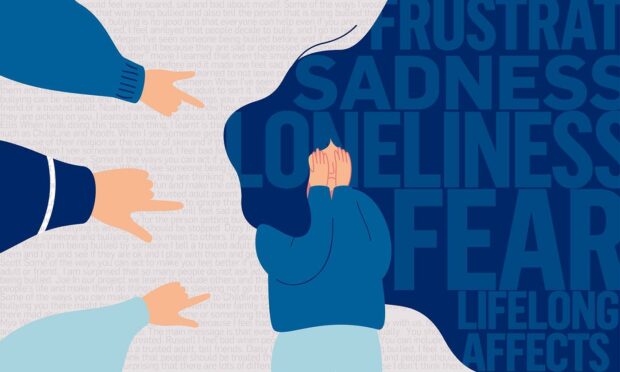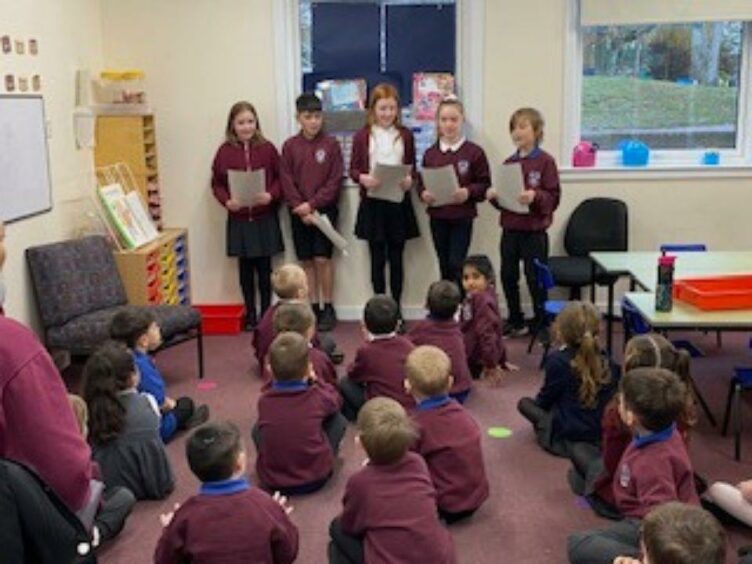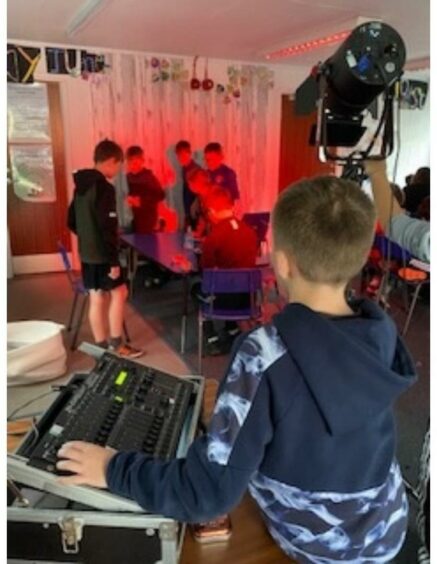A group of Aberdeenshire primary school pupils earned national recognition for a powerful anti-bullying video.
Student filmmakers at Elrick Primary School think we need to cut bullying from the script, and they’re willing to share their message with anyone who will listen.
Their recent short film, ‘What Made it Better,’ is about the ways everyone can help mitigate and prevent bullying.
It was selected as one of three finalists from more than 20 entries in a national competition, organised by respectme, Scotland’s anti-bullying service and The Royal Conservatoire of Scotland.
During their filmmaking, Elrick pupils learned hard lessons about bullying and its effects.
They found out that the effects of bullying can last a lifetime and that talking to someone you trust can make all the difference.
Rooting out the causes of bullying behaviours
Depute headteacher Jenny Anderson said that her P6 pupils started their film adventure with just a title – ‘What Made it Better’. From there, they set out to answer their own question.
They had conversations with Miss Anderson and with each other about their experiences with bullying and even led their classmates in a crash course about what they learned.
Miss Anderson thinks the process of filming helped her pupils as they tried to empathise with both bully and bullied.
“I was impressed with how they could get into the depth of the feelings behind bullying behaviour so quickly. I think the film helped that, because they had to act like bullies.
And as much as bullying is a common pitfall of growing up, she said that behaviour isn’t natural.
“They do find it quite difficult to be naturally really horrible to someone. So trying to feed into that on camera, and wonder how that person feels inside, I think that really helped.”
As P6 Megan explained, every type of behaviour has its roots in something.
“I’ve seen someone being bullied before and it made me feel very sad that the person bullying is probably only doing it because they are sad or depressed at something at home.”
Bullying doesn’t just go away
Miss Anderson said that most of the pupils spoke to adults who had experiences with bullying as kids and they still remember the feeling.
Lewis said that he was surprised to learn that bullying can affect somebody for the rest of their life. And Joe pointed out some of the immediate consequences of bullying that can have lingering effects.
“In our project, we learnt to include others and that bullying is horrible can have a big effect on people’s life and make them do things like stop sleeping, not go to school and be scared at school.”
The pupils all had a sense of what it felt like to be bullied or to watch someone being bullied.
Reece said that it’s easy to start questioning yourself after being bullied.
‘When I see someone being bullied, I feel worried and frustrated.
“I feel like they are thinking: ‘Why is this happening to me?’ ‘I hate myself!'”
Noah said that the worst part of his bullying experience was feeling singled out.
Teasing, bullying: What’s the difference?
Miss Anderson said that it was important for the pupils to learn the difference between bullying and run-of-the-mill teasing.
“It’s that different impact. It’s that feeling of powerlessness and not knowing what to do.
“They are at that stage where they’re learning banter as well. But there’s that line where you have to ask: Does the other person think it’s funny?
“It’s only funny if everyone thinks it’s funny.”
What do the (grownup) experts say?
Katie Ferguson, director of respectme, said that anti-bullying work begins with adults listening to children. Hear what they think works and help them put solutions in place, she said.
“Where bullying does take place, there often isn’t one, single solution to addressing it, but we know that the trusted adults can and do make a huge difference in children’s lives by helping them regain their voice and choose for themselves how they want to respond to bullying behaviour.”
Respectme shared some top tips for parents who struggle to talk to their children about bullying.
- Don’t panic. Show your child that you’re listening.
- Give your full attention.
- Talk to children about their time online and set boundaries.
- Remember that the solution should involve both of you
- Keep listening and making time to talk
More from the Schools & Family team
The P&J investigates: Why are other countries’ school pupils outperforming ours?
Highland schools power into top two spots at national hydrogen competition
When you’re hit hard by Covid, it’s scary for your children too


